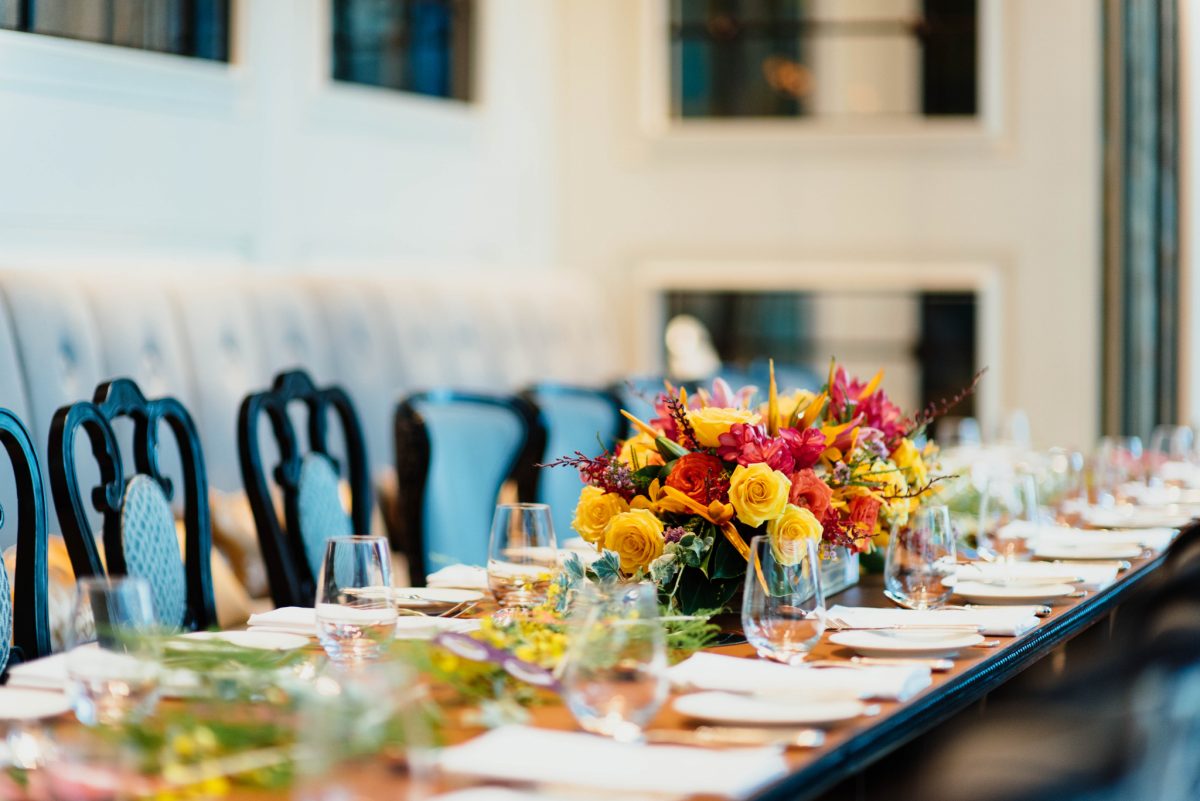
Rupert Wesson, Academy Director of Debrett’s, considers the nuances of doing business in sociable settings, and how live events can enable deeper client connections with luxury brands.
Luxury brands in any sector, be it jewellery, fashion, private banking or investment, have always used live events to build their businesses. Even now, when digital advertising is becoming more sophisticated and a bigger part of the overall marketing effort, luxury businesses still invest time and effort in live events and putting a glass of something sparking into the hands of customers and of course, influencers.
Live events are undoubtedly an expensive and time-consuming method of spreading the word, but they have a vital role to play for a high-profile brand. The skills and mindset required to engage with people in real life are very different from those needed to influence people through digital media. Social skills and an element of etiquette are as critical a component as the products, images, and themes on display.
Luxury brands, more than any other industry, understand the importance of social media and how to create an Instagramable image that will reach hundreds of thousands of people. They should not forget that they first need to make an emotional connection with the people in the room, and that cannot be achieved with a selfie opportunity.
Sometimes, luxury brands can be short-sighted and only see events as nothing more than the chance to position the product or the brand to the public. There are other avenues that can be explored. The events should be about building relationships with clients who normally only receive pushed messages. When we have people in the room, we can re-establish two-way communication and employ the beautiful nuances that are lost
in the digital world.
Building the brand and building relationships are intrinsically linked, but often we forget that we can, by nature, be irrational and emotional beings who may fall out of love with a brand very quickly if we don’t enjoy our interaction with the people who represent it. The secret to doing live events right is in getting the basics right.
Everyone should get a warm welcome to an event, especially those who arrive on their own. These first impressions are vital and the job of the home team is helping guests to feel comfortable and ensure they have a good time from the moment they walk through the door. Enlisting charming and socially confident people who can greet them and make introductions is a powerful way of doing this.
In addition, it is vital that you know who has been invited. All clients are of course important; however, it’s a good idea to ensure that any VIPs are identified ahead of the event so they are looked after from the moment they arrive. It’s these little touches that can make a difference and will leave a lasting positive impression.
It is vital for the client-facing team to be comfortable talking to people about things other than the product. If the guests only get a hard sell or a conversation about the company’s brand values, things will be rather dull. But the problem is that for many employees, the product and the brand are a zone of comfort that they need to be encouraged to step out of to make the guests feel welcome.
Other social skills are critical, too. For example, being good with names. Knowing and using people’s names shows respect for them and makes them feel included. This ability is so important; it is something we can all do, yet there is so little emphasis placed on it. There are some simple techniques to help anyone manage it. In a room full of relative strangers, the person who knows people’s names becomes the biggest influencer.
If staff understand that the aim of the event is not to push things on the client, they can take time to build relationships with the guests. Of course, the great news is that now, it is so easy to connect electronically with people (either via email, direct message or through other forms of social media) that there’s no excuse not to follow-up. It’s through this methodical and targeted engagement that the real selling takes place – be that in the short or long term.
By taking the focus of an event away from driving your brand or product and instead, using it to build a strong rapport with the people in the room, you can make your events as powerful and as accountable a part of your marketing strategy as any of the other elements. It just requires a few social skills.
